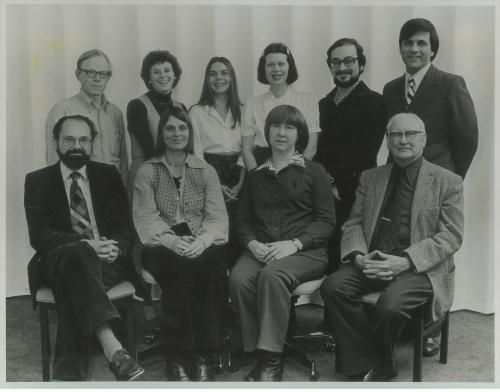The Department of Social Studies of Medicine was established in 1966 in McGill University’s Faculty of Medicine. Often referred to by its acronym, “SSoM,” our department has been known by three different names, the Department of History of Medicine (1966-81), the Department of Humanities and Social Studies in Medicine (1981-1992), and since then Department of Social Studies of Medicine. We mark the founding of the Department of Social Studies of Medicine with the hiring of Don Bates, who was recruited in July 1966 from Johns Hopkins University to be Associate Professor and Acting Osler Librarian. The new department was supported by three foundational grants and endowments: $50,000 from the Wellcome Trust; Dr Thomas F Cotton endowed a Chair in 1965; and in 1990, Dr Joseph Nathanson, an alumnus of McGill University with a longstanding interest in the history of medicine, left a substantial bequest to McGill for the history and culture of Medicine. Fortunately for us, the Nathanson funding still today supports some of the department’s operations.

“….the mission of the Department is twofold: to make an intelligible connection between individual medical practice and the micros/macro-social forces associated with health care at work in our society; and to relate the student’s career in medicine to his or her life as a whole. We believe that these two are related, that a social conscience and consciousness, needed to adapt to changing conditions and philosophies of health care, can only be developed hand-in-hand with a growing awareness and understanding of oneself. Unlike most medical teaching, therefore, our focus is at least as much on the physician-to-be as on the patient, in the belief that the behavior which students need to understand most is their own.”
The power of the department’s founding vision is still strong. We are currently twelve faculty members, many with cross appointments or associate memberships in DEEP (Equity, Ethics and Policy), History and Classical Studies, Anthropology, Sociology, and the School of Architecture. In 2016, we gathered to celebrate the department’s 50th anniversary. As part of our celebrations, PhD student Cynthia Tang conducted interviews with three of the founding members of SSoM: Joe Lella, Margaret Lock, and George Weisz.


